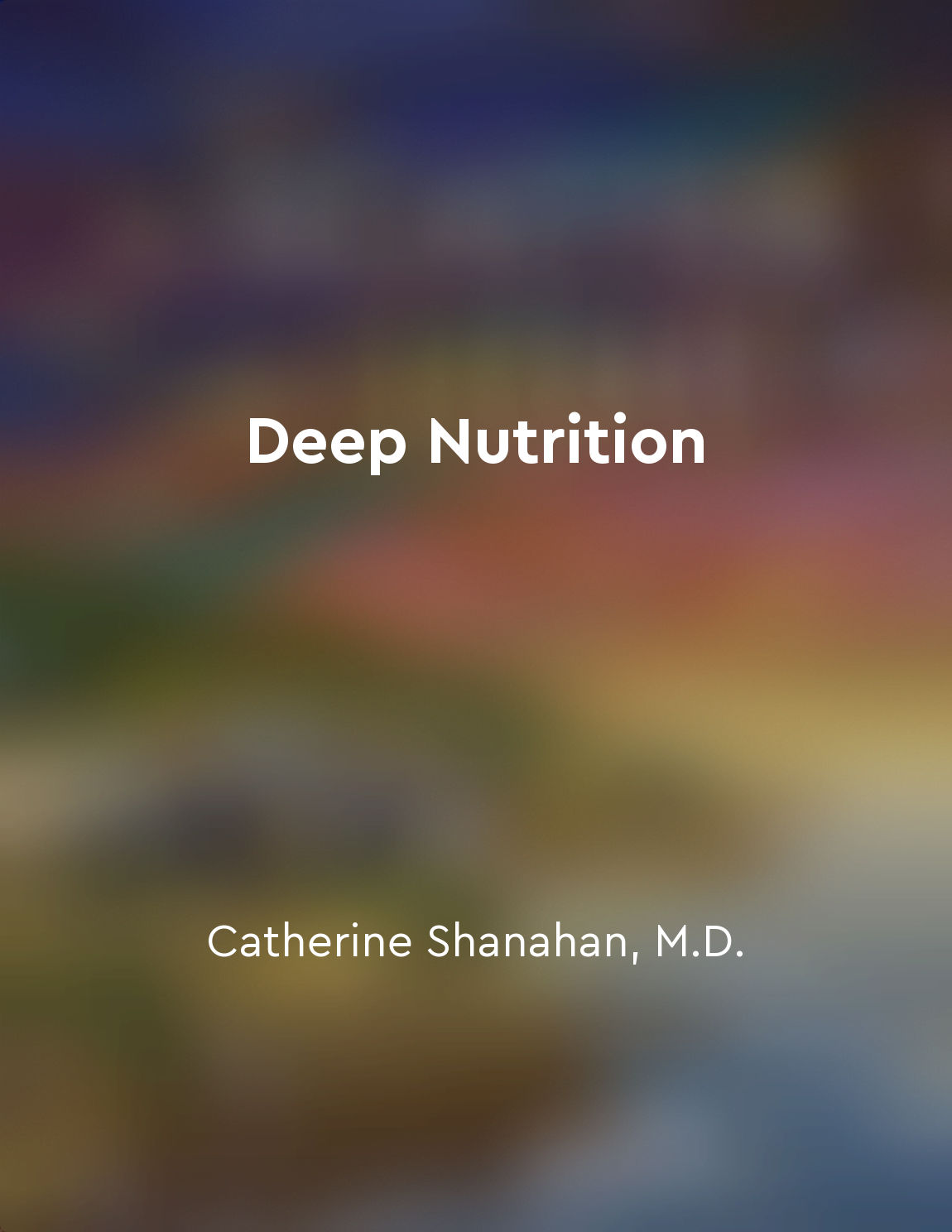Limit exposure to environmental toxins from "summary" of Deep Nutrition by Catherine Shanahan, M.D.
Toxins are everywhere in our environment, lurking in the air we breathe, the water we drink, and the food we eat. These toxins can wreak havoc on our bodies, disrupting our hormones, damaging our cells, and leading to a host of chronic diseases. In order to protect ourselves from these harmful substances, it is essential to limit our exposure to environmental toxins as much as possible. One of the key ways to reduce our exposure to toxins is to eat a clean, nutrient-dense diet. By choosing organic fruits and vegetables, grass-fed meats, and wild-caught fish, we can avoid many of the pesticides, hormones, and antibiotics that are found in conventionally grown and raised foods. Additionally, by avoiding processed foods that are high in sugar, trans fats, and artificial additives, we can prevent further toxic burden on our bodies. Another important way to limit our exposure to environmental toxins is to purify our water and air. Investing in a high-quality water filter can remove many of the contaminants that are present in tap water, such as heavy metals, chlorine, and fluoride. Similarly, using air purifiers in our homes can help to filter out pollutants like mold, dust, and volatile organic compounds that can compromise our health. In addition to cleaning up our diet and environment, it is also important to be mindful of the products we use on our bodies and in our homes. Many personal care products, cleaning supplies, and household items contain toxic chemicals that can be absorbed through our skin or inhaled into our lungs. By opting for natural, non-toxic alternatives, we can reduce our exposure to harmful substances and protect our health in the long run.- Limiting our exposure to environmental toxins is crucial for maintaining optimal health and well-being. By making conscious choices about the foods we eat, the water we drink, the air we breathe, and the products we use, we can minimize our toxic burden and support our body's natural detoxification processes. It may require some effort and investment, but the long-term benefits of reducing our exposure to toxins far outweigh the short-term convenience of ignoring their potential impact on our health.
Similar Posts
Supplements should not replace a healthy diet but can fill in gaps
It is important to understand that supplements are not a substitute for a well-rounded, nutrient-dense diet. While they can cer...
Food combinations influence digestion and nutrient uptake
The combination of foods that we eat can greatly influence how well our bodies digest and absorb nutrients. In fact, certain fo...
Create a peaceful and harmonious home environment
Creating a peaceful and harmonious home environment is essential for the well-being of all family members. It sets the tone for...
Legumes like beans and lentils are essential for protein
Legumes, such as beans and lentils, are crucial sources of protein in a healthy diet. These plant-based foods provide the body ...

Environmental toxins can harm the gutbrain axis
Environmental toxins have a detrimental effect on the delicate balance of the gut-brain axis. This axis is a complex network of...
Avoid processed foods and artificial additives for better health outcomes
To achieve optimal health outcomes, it is imperative to steer clear of processed foods and artificial additives. These substanc...
Personalized medicine can optimize cancer treatment outcomes
Personalized medicine is a groundbreaking approach that tailors cancer treatment to the individual patient. By analyzing the ge...
Prioritize whole foods over processed ones
When it comes to choosing what to eat, one of the most important guidelines to follow is to opt for whole foods over processed ...
Forests reclaim abandoned farmland
In regions where farmers have moved on, nature gradually takes over. As plows are put aside, trees and bushes start to reclaim ...
Evolutionary success leads to destruction
The history of life on Earth is a story of competition, adaptation, and survival. Over billions of years, organisms have evolve...


